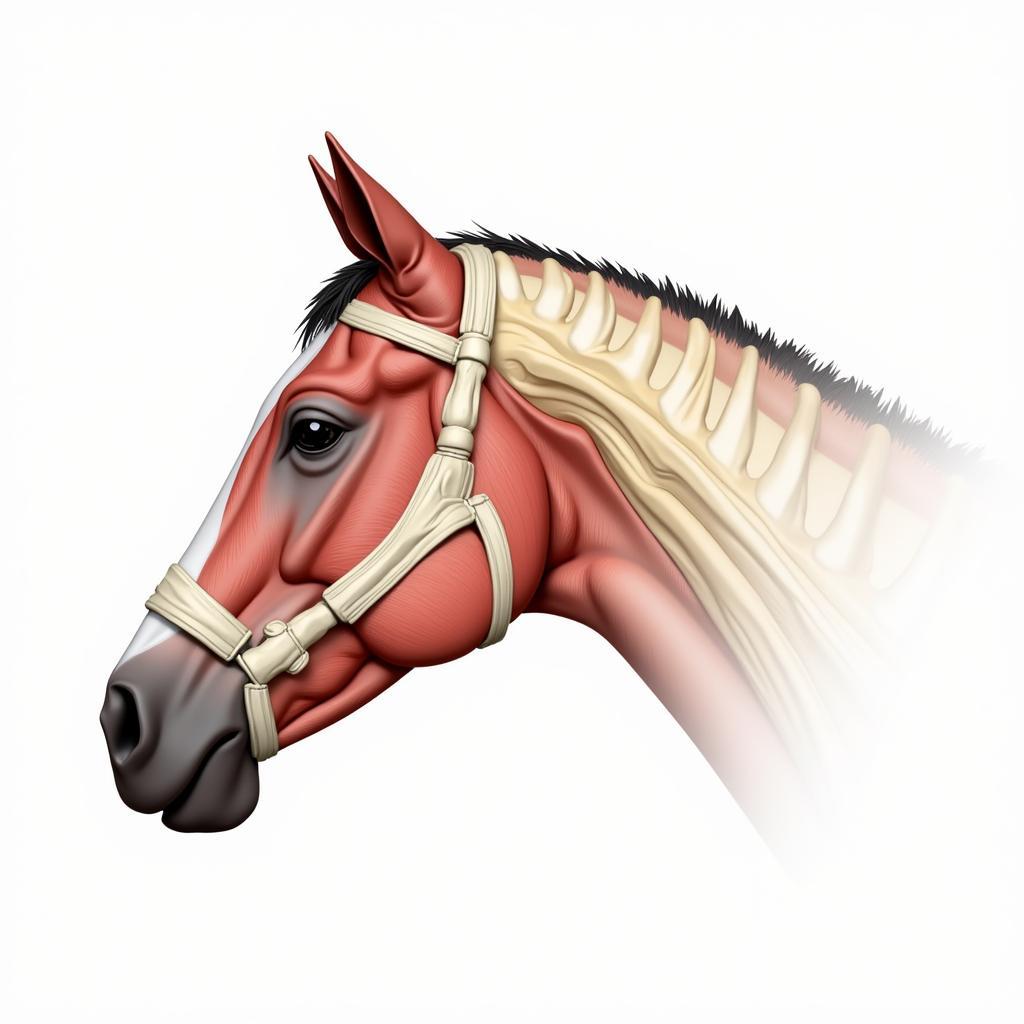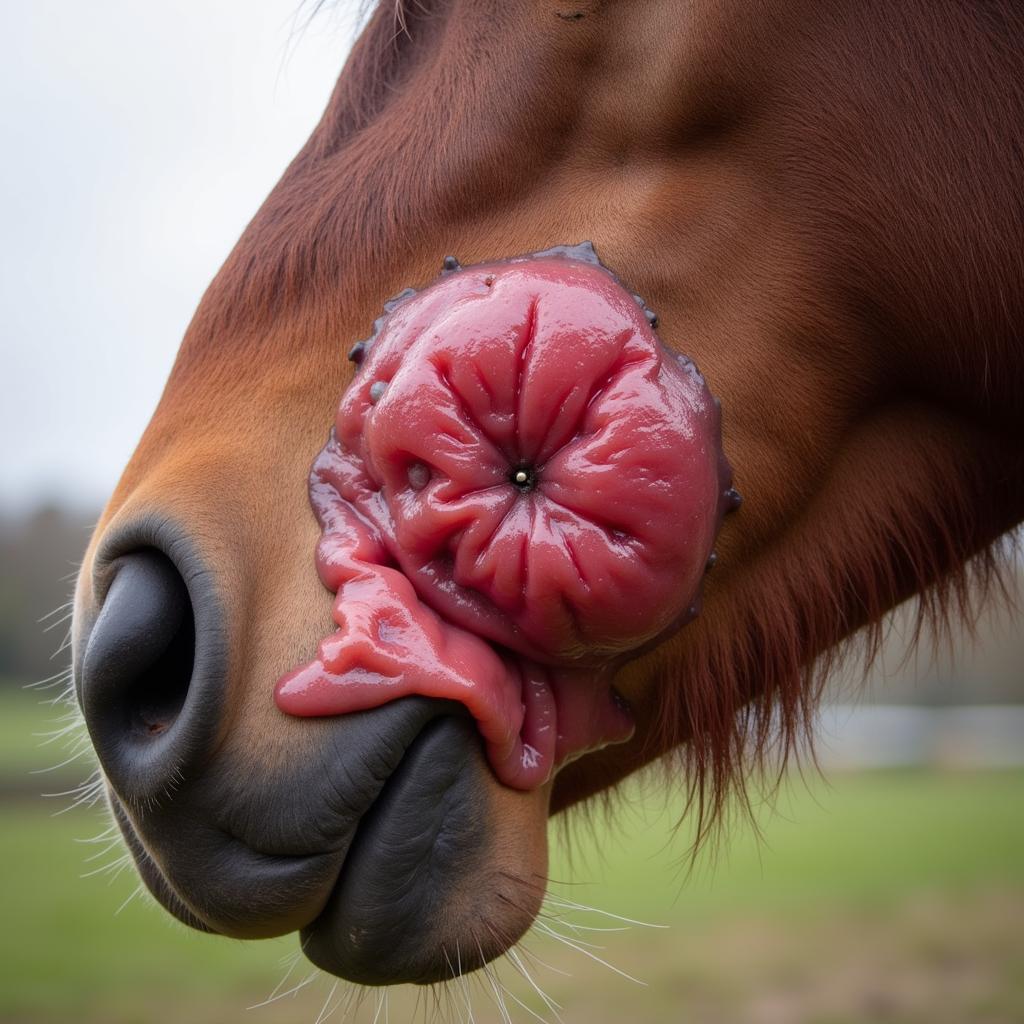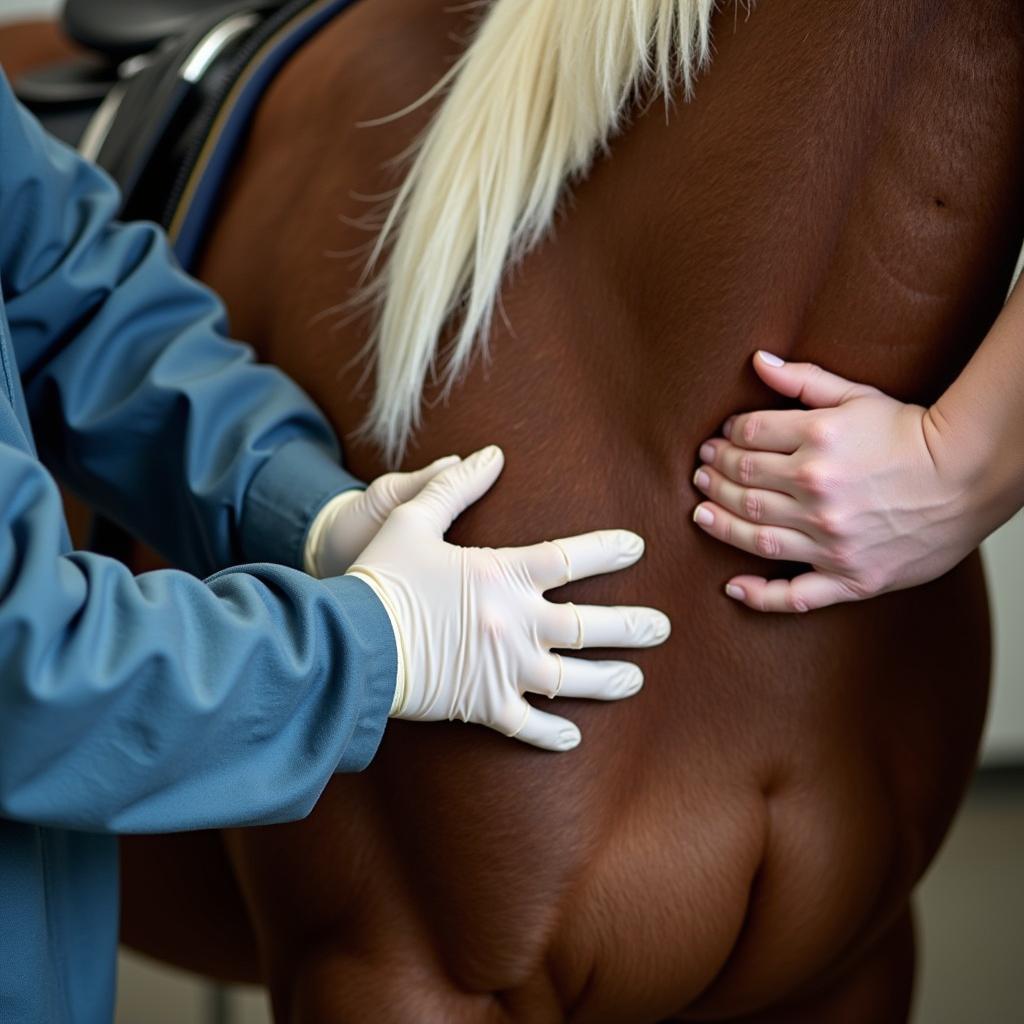Discovering a lump on your horse’s neck can be alarming. While not all lumps are cause for panic, it’s crucial to approach the situation with informed caution. This comprehensive guide will delve into the common causes of lumps on horses’ necks, outlining potential treatments and highlighting when it’s essential to contact your veterinarian.
 Horse Neck Anatomy
Horse Neck Anatomy
Understanding Lumps: It’s Not Always What You Think
Before jumping to conclusions, it’s important to understand that lumps can stem from various factors, ranging from benign skin irritations to more serious underlying conditions. Identifying the type of lump is the first step towards effective management.
Common Culprits: Unraveling the Mystery
Let’s explore some of the most prevalent reasons behind lumps on a horse’s neck:
1. Insect Bites and Reactions: A Seasonal Nuisance
As any horse owner knows, pesky insects are a constant battle. Bites from mosquitos, flies, and other insects can cause localized swelling and irritation, leading to noticeable lumps.
What to look for:
- Small, firm, and often itchy bumps
- Seasonal occurrence, particularly during warmer months
- Possible presence of scabs from scratching
2. Abscesses: When Infection Takes Hold
An abscess, essentially a collection of pus beneath the skin, can develop as a result of a wound or bacterial infection.
What to look for:
- Warm, painful, and swollen lump
- Possible discharge of pus
- Lethargy and loss of appetite in severe cases
 Equine Neck Abscess
Equine Neck Abscess
3. Strangles: A Highly Contagious Threat
Strangles, a highly contagious respiratory infection, can manifest as abscesses in the lymph nodes under the jaw and around the neck.
What to look for:
- Multiple, large, and painful abscesses
- Fever, nasal discharge, and difficulty swallowing
- Coughing and difficulty breathing
Immediate Veterinary Attention is Crucial: Strangles requires prompt veterinary care to prevent serious complications and halt the spread of infection.
4. Tumors: From Benign to Malignant
While less common, tumors, both benign (non-cancerous) and malignant (cancerous), can also appear as lumps on the neck.
What to look for:
- Hard, immobile lumps that grow slowly or rapidly
- Ulceration or bleeding from the lump
- Weight loss, lethargy, and other systemic signs
Treatment Approaches: Tailored to the Cause
The treatment for a lump on your horse’s neck depends entirely on the underlying cause.
- Insect Bites: Often resolve on their own. Topical anti-itch creams and fly repellents can provide relief and prevent further bites.
- Abscesses: Typically require veterinary drainage and a course of antibiotics.
- Strangles: Requires isolation, supportive care, and antibiotics as prescribed by a veterinarian.
- Tumors: Treatment varies depending on the type and location of the tumor and may involve surgery, chemotherapy, or other therapies.
When to Worry: Recognizing Red Flags
While many lumps are benign, it’s crucial to contact your veterinarian if you notice any of the following:
- Rapid Growth: A lump that increases in size quickly.
- Severe Pain: Your horse shows signs of significant discomfort.
- Open Sores: The lump breaks open, bleeds, or oozes pus.
- Systemic Illness: Your horse exhibits fever, lethargy, loss of appetite, or other signs of illness.
 Veterinary Exam for Neck Lump
Veterinary Exam for Neck Lump
Expert Insight: Dr. Emily Carter, Equine Veterinarian
“Early detection and intervention are key when it comes to lumps on horses,” advises Dr. Emily Carter, a renowned equine veterinarian. “While a small bump might seem insignificant, it’s always best to err on the side of caution and consult your vet for a proper diagnosis and treatment plan.”
Seeking Professional Guidance: Your Partner in Equine Health
Remember, you are your horse’s advocate. If you have any concerns about a lump on your horse’s neck, don’t hesitate to reach out to your veterinarian. They possess the expertise and experience to provide an accurate diagnosis and recommend the most appropriate course of action to ensure your equine companion’s well-being.
Have other Concerns About Your Horse’s Health?
You might find these resources helpful:
Need Immediate Assistance?
Don’t wait! Contact Justus Horses USA for expert advice and support.
Phone: 0772127271
Email: [email protected]
Address: QGM2+WX2, Vị Trung, Vị Thuỷ, Hậu Giang, Việt Nam
Our dedicated team is available 24/7 to address your equine health concerns.